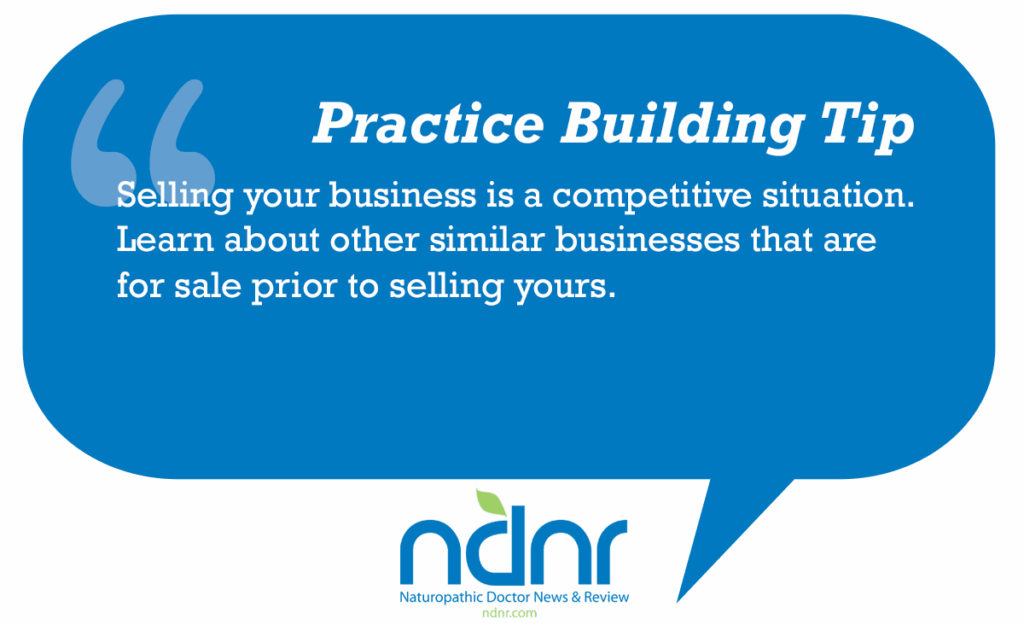Selling Your Business: Steps to Attracting the Right Buyer at the Right Price
Monte Zwang
If you own a business or practice and think a sale of it may be in your future, then you will need it to appear as desirable and investment-worthy as possible. Selling your business is an important step in any exit strategy for business owners. Maximizing the value you receive for your business depends on the plan you put in place before you bring your business to market.
Be Certain the Price is Right
The first step in selling your business is to determine its value. Business value is determined by evaluating gross sales, net income, equity and asset value. Of these financial factors, the most important is net income; this means  profitability. If a business has not been profitable, it is unlikely that a seller will receive an offer he or she would be excited about. Here’s how profitability is determined: Sales minus direct costs (such as labor, product, operating and back bar supplies) equals gross margin. Direct costs should fluctuate with sales. Gross margin minus indirect costs (such as rent, insurance, advertising, equipment leases, utilities, etc.) equals net income. Indirect costs are also called overhead, are the same every month and do not fluctuate with sales.
profitability. If a business has not been profitable, it is unlikely that a seller will receive an offer he or she would be excited about. Here’s how profitability is determined: Sales minus direct costs (such as labor, product, operating and back bar supplies) equals gross margin. Direct costs should fluctuate with sales. Gross margin minus indirect costs (such as rent, insurance, advertising, equipment leases, utilities, etc.) equals net income. Indirect costs are also called overhead, are the same every month and do not fluctuate with sales.
To determine value, simply multiply net income by a number between two and five. Multiply gross revenue by a number between 35% and 65%. These multipliers vary among industries, but in general, medical practices typically use a net income multiplier of two and a gross revenue multiplier of 60%. The result of these values determines a range of business value. Price is affected by the terms of the transaction. You can get a higher price if you take a lower down payment and carry a contract for the balance. If you accept an all-cash offer, plan on providing a 25% discount.
Selling your business is a competitive situation. Research is important. Learn about other similar businesses that are for sale prior to selling yours. Know why yours is the best business available. You should be able to convince anyone (including yourself) why you would buy it if you were looking for a business.
The Importance of Curb Appeal
Buyers are looking for a deal, and are determined to pay as little as possible. By taking time to view your business from the buyer’s perspective, you will be able to present your business in the best light. Prior to marketing the sale of your business, be critical of how it looks operationally, financially and physically. Don’t be afraid of making repairs: painting, cleaning, investing in the facility. Be certain your books and records are in order and presentable. Anticipate and remove any objections a buyer may have before negotiations begin. Create and document a compelling argument for someone to buy your business.
Shhh, It’s Confidential
The only time anyone should know that a business is being sold is after the sale closes. The more you talk, the more everyone else will, too. Don’t discuss the transaction with employees unless you intend to sell it to them. Rumors of a sale create an energy that can be disruptive and could cost you, your employees and your customers.
Choose a Smart Broker
A broker facilitates and manages the negotiation and transaction of a business sale. Using a business broker should add a level of professionalism and experience to the process. This person is hired to represent your interest in a very important transaction; he or she should be respectful and accountable to you, and vice versa. The broker cannot create value, but only represents what you have to sell. Look for someone who is professional, experienced, competent and creative. The broker should help value your business and define a marketing plan that will get it some exposure while maintaining confidentiality. The broker should also pre-qualify potential buyers. Brokers usually are paid the greater of a percentage of the selling price vs. a minimum fee when the sale closes.
 Monte Zwang is a principal of Wellness Capital Management, providing cash flow and financial strategies to businesses in the wellness industry. He has been a consultant for more than 25 years, teaching the strategies of cash flow management to entrepreneurs and company leaders in health care, real estate, food and beverage, day spa, resorts and hotels, and retail industries.
Monte Zwang is a principal of Wellness Capital Management, providing cash flow and financial strategies to businesses in the wellness industry. He has been a consultant for more than 25 years, teaching the strategies of cash flow management to entrepreneurs and company leaders in health care, real estate, food and beverage, day spa, resorts and hotels, and retail industries.










